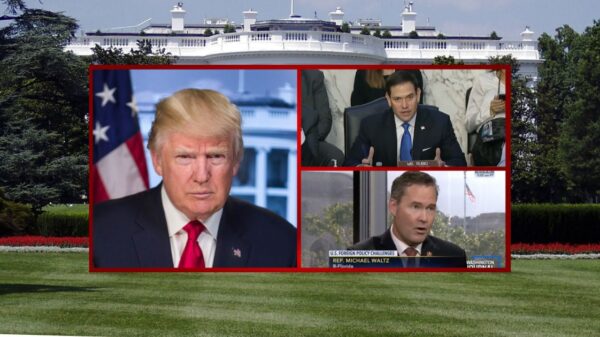On Wednesday, U.S. Sen. Marco Rubio, R-Fla., sent a letter to U.S. Securities and Exchange Commission Chair Gary Gensler asking him to assess the risks of widespread electric vehicles (EV) adoption and to require EV companies to enhance their risk disclosures to investors.
“The Biden administration is failing to educate investors and consumers about the risks of its own policy agenda. Many reports have cautioned that a rapid transition to electric vehicles (EV) could have disastrous consequences for America’s transportation infrastructure, electric grid, and supply chains. Yet, the Biden administration is barreling toward universal EV use without acknowledging these risks,” Rubio’s office insisted.
The letter is below.
Dear Chair Gensler:
I am concerned that members of the public and investors in electric vehicle (EV) companies are not being informed of the risks associated with increased production of EVs, including potentially disastrous implications of widespread EV adoption for the country’s transportation infrastructure and energy grid. I write to request that the U.S. Securities and Exchange Commission (SEC) evaluate these risks, and enhance the disclosure requirements of registrants that produce EVs, to allow investors to be better informed about the risks of investing in such companies.
The impartial assessment and disclosure of such risk is urgently needed given the Biden Administration’s breakneck efforts to force EV adoption. As you know, this administration is proposing strict environmental standards that are intended to shift two-thirds of new vehicle production to EVs by 2032. Numerous reports have cautioned policymakers about the serious consequences of rising EV adoption on transportation infrastructure, the electrical grid, and supply chains.
The U.S. Energy Information Administration forecasts our country’s transportation sector will increase electricity consumption from 12 billion kilowatt hours per year in 2021 to more than 145 billion kilowatt hours by 2050. The dramatic rise in consumption will place pressure on the electric grid and may force electric utilities to implement rationing practices such as rolling blackouts.
Even current levels of EV use have overburdened our electrical grid. During a heat wave last September, California authorities asked residents to avoid charging EVs at night in an attempt to keep the electrical grid from overheating. Widespread EV use also would impose massive demands on an already strained local power distribution network. The Boston Consulting Group estimates that each additional EV on the grid could require as much as $5,000 in needed improvements to neighborhood power distribution networks. In short, a rapid transition to EVs could burden electric utilities with the need to overhaul neighborhood power infrastructure on a tight timeframe.
The EV industry still faces considerable issues in power delivery, with widespread reports of faulty and unreliable charging stations. Common problems with the charging network include software glitches, inadequate power supply, and inoperable chargers. According to J.D. Power, failed charging attempts rose from 15 percent in 2021 to more than 21 percent in 2022. Imagine if gas stations failed to perform their most basic function one out of five times.
EVs typically are much heavier compared to similarly sized, gas-powered vehicles, which will put additional strain on America’s transportation infrastructure. The American Society of Civil Engineers warns that an increase in EVs could substantially reduce the lifespan of roads and bridges, necessitating further investment in infrastructure. Another report warns that aging parking garages may collapse under the weight of EVs.
Finally, the EV industry is heavily dependent on the People’s Republic of China (PRC) for components and scarce raw materials such as lithium, cobalt, nickel, and graphite. This dependency poses a serious risk to EV companies, which could be cut off at the whim of the Chinese Communist Party. At least one battery company, Microvast, admitted as much in SEC disclosures, writing “[t]he PRC government may exert, at any time and with no notice, substantial interventions and influences over the manner in which we conduct our business activities, which we may not be able to anticipate.” The PRC produces three-quarters of all lithium-ion batteries, 70 percent of cathodes, and 85 percent of anodes required for EV batteries. Furthermore, China holds over half of the world’s processing and refining capacity for lithium, cobalt, and graphite. U.S. firms have a relatively small presence in the EV battery supply chain. Almost none of the raw materials are mined domestically.
The Biden Administration is pressing for widespread EV adoption despite these potential risks, which signals disaster for investors and the American public. Consistent with the SEC’s mission to protect investors and maintain fair, orderly, and efficient markets, I therefore urge the SEC to assess the systemic risks that widespread EV adoption poses to our economy, infrastructure, and way of life. I further urge the SEC to enhance the disclosure requirements for EV companies to include information about their effects on infrastructure and dependency on hostile and capricious foreign powers like China in their registration statements and periodic reports.
Thank you for your attention for this urgent matter.


















